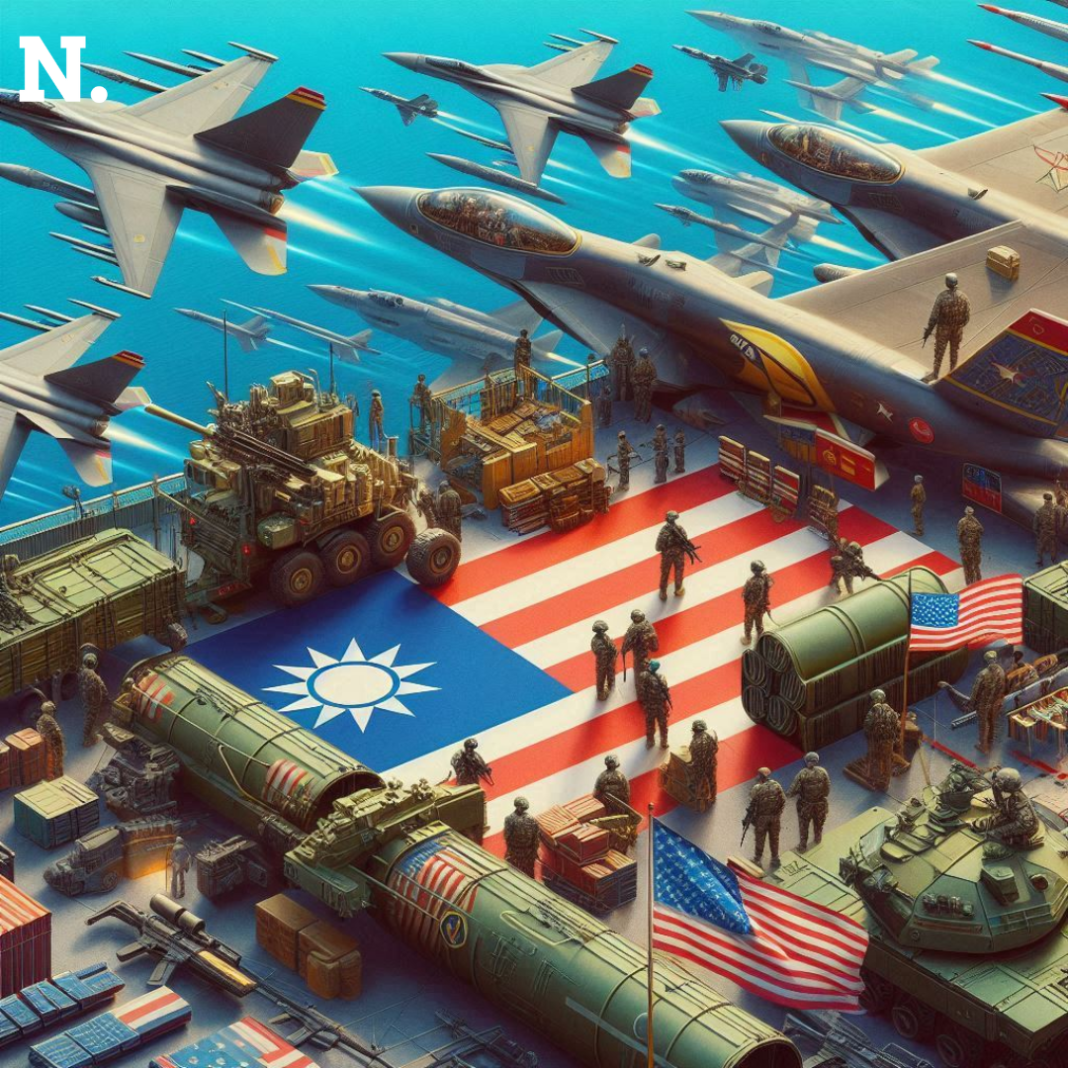It has just approved a fresh arms sale of $360 million to make a strong statement for the strengthening of Taiwan’s defences. For the most part, the proposed sale would be centred on advanced drones, as well as other associated equipment. This comes at a time when the region is mired in simmering geopolitical tensions underscored by strategic backing from Washington for Taipei.
$360 Million Arms Sale: Enhancing Taiwan’s Capabilities
The approved package includes four MQ-9B SeaGuardian drones manufactured by General Atomics, paired with state-of-the-art surveillance and reconnaissance equipment. These are the very drones that would serve as linchpins in Taiwan’s quest to upgrade its intelligence gathering capabilities and maritime security, two essentials to ensure the protection of its territorial waters amid heightened Chinese military activities.
It is the latest in a long history of U.S. policy redundancy in assisting Taiwan. To project a credible defence posture against potential Beijing threats. The island, officially called the Republic of China, has been a focus of tense relations between the U.S. and China. As Beijing has claimed Taiwan as its territory and very much opposed any international support or even slight recognition of Taiwan’s sovereignty.
360 Million Arms Sale: U.S. Commitment
The Biden administration has authorised an almost $360 million arms sale to Taiwan, its first since he took office, in another move aimed at emphasising Washington’s commitment to Taiwan ahead of Xi Jinping’s key Communist Party congress next month. China opposes the sale as interference in its internal affairs and said it could have repercussions for US-China relations. China views Taiwan as an issue involving its core national sovereignty, and it has sanctioned American firms involved in previous arms sales.
However, according to U.S. officials, sales figures within the bigger strategy of the United States toward the Indo-Pacific are geared toward realising peace and stability, especially with fear mounting over China’s military assertiveness and activities in the South China Sea.
This move underscores the delicate balance Washington seeks to maintain between supporting Taiwan’s security needs and managing. Its complex relationship with Beijing. It also highlights ongoing U.S. efforts to strengthen partnerships with regional allies to counterbalance China’s influence. Signalling a strategic shift in U.S. foreign policy priorities under the Biden administration
Enhancing Taiwan’s Defence: Capabilities with $360 Million Arms Sale
The MQ-9B SeaGuardian drones would provide long-range, large-area coverage over maritime areas necessary for persistent surveillance. In monitoring and reacting to potential threats at sea. Equipped with state-of-the-art sensors and communication systems, the drones would significantly improve Taiwan’s capability to conduct intelligence gathering and respond very strongly to any challenge against its maritime security.
Furthermore, the arms sale includes various communication systems, ground control stations, and support equipment. That are essential for maintaining and operating the MQ-9B drones. This comprehensive package not only enhances Taiwan’s defensive capabilities but also signifies a deeper security partnership between Taipei and Washington in the face of shared regional challenges
Opponents of the arms sale say such moves risk escalating tensions and provoke Beijing into more aggressive actions. Some opposition feels unwarranted since Taiwan reserves the right to protect itself against any external threat, and that the United States has a responsibility and commitment to supporting its democratic ally for the maintenance of stability and security in the region.
$360 Million Arms Sale: U.S. Strategic Shift in the Indo-Pacific
The approval of the $360 million arms sale for Taiwan reflects the broader tectonic shifts in U.S. foreign policy. Under the Biden Administration, one that has emphasised strengthening alliances and partnerships designed to counter. The rising influence of the People’s Republic of China in the Indo-Pacific. According to that strategic calculus, Taiwan’s defence strengthening falls within the ambit of a more comprehensive strategy to keep the Indo-Pacific free and open
Looking ahead, the coordination of activities will include implementing U.S. and Taiwanese defence officials. To ensure the smooth integration process of new equipment within Taiwan’s existing defence infrastructure. It also shows the change in the U.S.-China relation and how Washington walks on a tightrope, balancing Taipei’s security concerns with broader geopolitical risks.
Taiwan: Security Matters
Under these circumstances, the $360 million arms sale to Taiwan refers to a grave development in U.S.-Taiwan relations. At a time when there is an escalation of tensions between the United States and China. It has given ample proof that America is serious about security matters for Taiwan. Even while fully taking into account the fact pointed out—the strategic role of Taiwan in the U.S. strategy. Directed toward raising issues of stability and security in the Indo-Pacific region. Geopolitical tensions and their implications for future dynamics in one of the most strategically sensitive. Regions in the world cannot ignored when it comes to the sales of arms.





